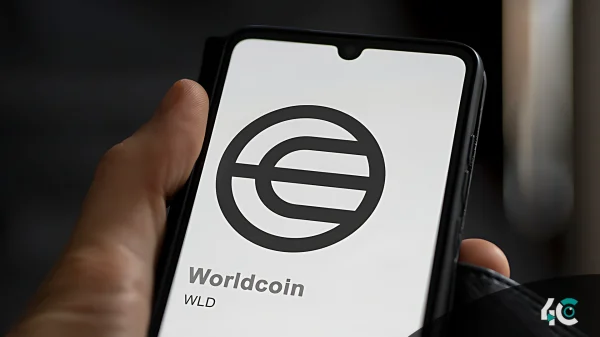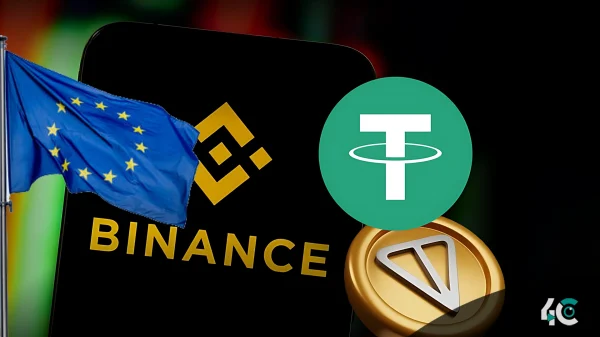Through staking, an investor can not only earn rewards by holding crypto coins, but he or she can also trade them. Unlike bitcoin, other cryptocurrencies use proof of stake (PoS) as a consensus mechanism, a technology that is relatively new.
To help the blockchain validate transactions, users stake their crypto assets on the network. In contrast, staking isn’t just an altruistic act aimed at benefiting the network. When you stake, you are rewarded with the cryptocurrency that you have staked.
What is staking?
There is no central authority maintaining blockchains, which are databases of transactions. A proof of work blockchain like Bitcoin relies on a powerful computer mining cryptographic puzzles to validate transactions securely. However, mining is a complex and expensive process that consumes a lot of electricity. This makes it unaffordable for most.
Networks with proof of stake like Polkadot, Cardano, and Ethereum 2.0 do away with all that by using staking, which is a mechanism of funds commitment. Validators get rewards for staking crypto. A portion of the reward belongs to anyone who delegated crypto to the validator (less the validator’s cut, of course).
Staking is, therefore, a financial attractive option for crypto investors who prefer holding assets rather than trading them every day, regardless of their size. While staking is a complex mathematical concept, it actually requires only a small amount of technical knowledge.
Pros & Cons of Staking Coins
The downside of staking coins is that they are a passive investment. Staking interest income will be impacted by these block rewards as well as the general volatility of cryptocurrency. If the value of a coin drops, it will impact your staking interest income.
Popular Types of Staking Coins
A variety of cryptocurrencies are available, and they can often be staked for rewards. The following are a few cryptos and coins that can be staked to earn returns, although this is by no means an exhaustive list:
• Ethereum: Ethereum is among the most popular cryptocurrencies. You will need at least 32 ETH to stake Ethereum on your own. Depending on the stake, Ethereum staking can return anywhere from 5-17% a year.
• EOS: In the sense that it supports decentralized applications, EOS is similar to Ethereum. For staking EOS tokens you can earn rewards, as you can with other cryptos. A 3.2% rate of return is currently expected for EOS staking as of April 2021.
• Tezos: In similarity to Ethereum and EOS, Tezos also has a native currency and is symbolized by the XTZ symbol. Like Ethereum and EOS, Tezos can also be staked on platforms. Tezos staking currently provides a return of about 6%.
How do you stake crypto?
Investors need to determine exactly what they want to stake and where to start crypto staking. Let’s take a look at four easy steps:
- To stake, choose a crypto or coin.
- Staking coins are stored in a digital wallet that you can choose and download. This may involve downloading the corresponding wallet from the cryptocurrency’s main website.
- Make sure you have a sufficient number of coins. To participate in certain networks, stakers must possess a certain amount of coins (e.g. Ethereum holders must maintain 32 $ETH).
- You must have a strong internet connection and sufficient computing power.
Staking can begin once everything is in place. Almost everyone will only need to monitor their crypto holdings once in a while to ensure that everything is working as it should.
Staking through cryptocurrency exchanges
Through the exchange’s user interface, customers can stake their coins with validators that they run. These include:
- Binance
- Coinbase
- Kraken
- Bitfinex
- OKEx
- KuCoin
- Okcoin
It is often similar to stake on exchanges. The locking period, the fees, and the available cryptocurrencies for staking are the main differences between exchanges’ staking offerings. The main menus of some exchanges, like Kraken, have a staking option listed. Other exchanges, like Binance, will list it under “Earn,” which also includes other passive methods of making money from crypto, such as lending.
A few major exchanges do not support staking, however. Gemini’s “Earn” program lets you earn interest on digital assets like Dogecoin, but it does not support stake for cryptocurrencies that rely on proof-of-stake. In certain jurisdictions, like New York or Hawaii, exchanges may not allow you to stake your cryptocurrency.
Ways of staking and staking-as-a-service (SaaS)
In general, there are two ways to stake.
In the first case, you run your node as a validator. The bootstrapping process is quite lengthy. A validator node can only be run by someone who has both a secure and stable technical infrastructure, as well as the expertise to do so. Staking requires a substantial amount of coins. A minimum of 32 $ETH is required to become an Ethereum 2.0 validator!
Typically, staking is carried out by delegation, where coins are delegated to validators who have the necessary setup. In exchange for taking a commission off of your stake rewards, validaters will do the difficult work of maintaining a node for you. That’s it!
A new industry has emerged called staking-as-a-service (SaaS). In other words, you’re not giving a validator custody of your coins when you delegate them. Your assets remain yours at all times. Your rewards are typically automatically reinvested so there is nothing you need to do. You can opt-out of compounding rewards on some staking platforms if you don’t want them.
Staking and tax
Many tax authorities around the world have yet to decide how to tax staking cryptocurrency, since it is a relatively new concept. According to HMRC’s updated tax guidance released in March 2021, staking is effectively the same as crypto mining.
According to IRS guidance from 2014, crypto mining income is taxable gross income. Miners are treated as businesses, so the revenue from mined coins is taxed immediately.
It does not apply to staking. A lawsuit pending in the U.S. District Court in Tennessee is challenging this position’s applicability to staking. Joshua Jarrett, the plaintiff, contends that his Tezos staking rewards are property, and therefore taxable only when sold or exchanged. To the best of our knowledge, the debate is not yet settled, so anyone looking to stake their cryptocurrency should seek the advice of a tax advisor who has experience with cryptocurrency accounting.
The future of staking
Staking has become a popular choice for crypto users with less technical knowledge, or for those with sufficient holdings, due to the convenience of not having to leave cryptocurrency exchanges.
Taking Q2 statistics into account, Staking company Staked projects an annual reward of $12.5 billion for staking this year. This is expected to increase to $40 billion by 2025, according to JP Morgan research.
It is the general trend in crypto toward a proof of stake system, fueled in part by criticism of proof of work as being environmentally destructive. Moreover, proof of stake makes bootstrapping and scaling easier.
With Ethereum 2.0, the world’s second-largest cryptocurrency, transitioning to Proof of Stake, staking is likely to take an even larger share of the overall cryptocurrency market.
Conclusion
You can earn additional rewards by staking your crypto holdings. Consider it like earning interest on cash savings or dividends on stocks. Staking can provide another opportunity for crypto investors to earn returns.















































